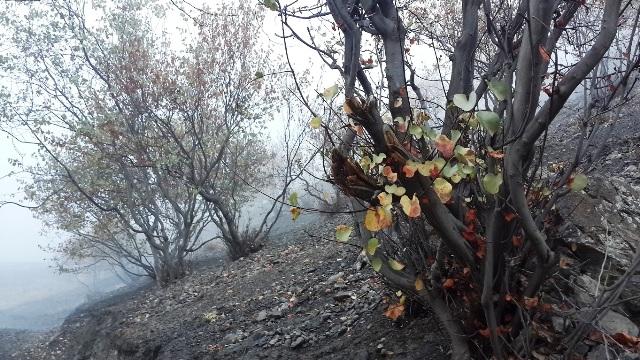TALOQAN (Pajhwok): Forests in most districts of northern Takhar province are being cut down and meadows turned into agriculture, officials say.
Syed Nasir Mahjob, the provincial Environment Protection Department head, told Pajhwok Afghan News the high rate of timber-cutting had raised concerns about environmental sustainability.
“The main problem before the Takhar environment is deforestation. Forests spread over thousands of acres of land have been cut down in districts across the Kokcha River. In addition, land-gabbers and powerful individuals have turned meadows into agriculture fields,” he lamented.
Mahjob said the situation not only threatened climate and the life support of people depending on grazing lands and forests but also forced animals and birds into migration elsewhere.
“Floods have recently increased and the reason is soil degradation. The soil erodes with little downpours which easily turn into flooding and as a result, residents are inflicted life and property losses.”
Rains each year cause the Kokcha and Amu rivers to burst their banks, inundating thousands of acres of agriculture land, fruit orchards and residential homes and the reason behind this devastation is seen the large-scale timber-cutting along the banks.
Residents living across the Kokcha River say deforestation there goes unchecked and it has created many problems for them. The river has so far caused huge financial losses to residents, they say.
Mohammad Zahid, a resident of the Khwaja Bahauddin district, told Pajhwok Afghan News forests in Darqad, Khwaja Bahauddin and Yangi Kala districts disappeared with each passing year.
He said if the government did not take action to prevent the fast deforestation, not a single tree could be seen on the beaches of Amu and Kokcha rivers.
“The forests control the river, if the trees are cut down, the water would sweep away people’s lands and homes as we witnessed in Darqad and other districts this year. Tribes should make decisions and prevent forests from being vanished,” he said.
A resident of the Darqad district, Mohammad Salim, said it was problematic for the government to prevent forests from being cut down in every part of the country.
He said residents living near the forests should prevent their cutting because the trees served as a natural shield to protect them from disasters.
Forests development head at the provincial Agriculture Department, Nazak Mir, said acknowledged forests were being cut down in Darqad, Khwaja Bahauddin and Yangi Kala districts, but said deforestation had been controlled in other parts of the province.
He said forests were being harvested by powerful individuals and insurgents and police could not prevent them.
“Our officials keep care of forests in the region, but they cannot prevent forests cutting in the three districts, where powerful individuals and Taliban exist.”
Takhar police spokesman Col. Abdul Khalil Asir told Pajhwok Afghan News vehicles coming from Yangi Kala and through the Kokcha River bridge were being checked for timber.
He said when timber was found in these vehicles, police referred the individuals responsible to judicial organs.
He said police were fully cooperating with forest officials. “If foresters give a list of individuals involved in timber-cutting, police will arrest them,” he said.
He said police detained dozens of people each year for cutting trees and referred them to prosecutors.
Official figures show forests and barren land spread over 450,000 hectors of land in Takhar, but 80 percent forests had been lost to the decades of war. Currently, forests in Takhar exist on 100,000 hectors of land.
ma
Visits: 5









GET IN TOUCH
NEWSLETTER
SUGGEST A STORY
PAJHWOK MOBILE APP